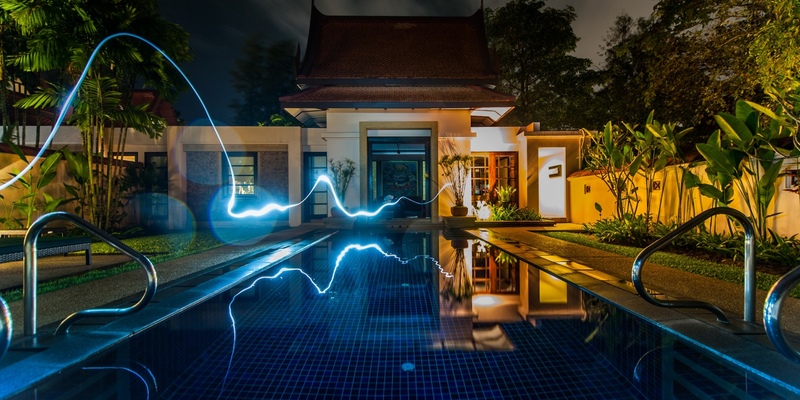A huge benefit of having a smart home is the ability to remotely monitor and manage your home from wherever you are. But why would you need to control a home you aren’t physically in? Here are five examples of when managing your home remotely might come in handy.
1) YOU’LL BE HOME LATE
It’s the middle of winter, you’ve got a day full of meetings and you’re not sure when you’ll be home. Rather than setting the heater to come on at a certain time you could use your phone to turn it on at the exact time of need – such as when you’re leaving the office.
Thermostats that automatically keep your home at particular set temperatures have been around for years, but if you needed to change the settings or simply switch the system off, you needed to be home. Smart homes mean you can control the system remotely from wherever you happen to be.
2) YOU’RE ON HOLIDAY
It’s the festive season and you’re going on holiday. The house is going to be vacant for a couple of weeks and you’ve got a nervous feeling about leaving your home empty for that time.
In the past people often left the television on while holidaying to give potential burglars the impression of human activity. Nowadays it’s possible to set smart switches on schedules to light up the house at certain points in the evening mimicking what you’d normally do when you’re home. Having your smart phone connected to the smart switches in your home allows you to physically control or schedule security enhancing behaviors. A security schedule could include outdoor lights coming on at night and off by day or indoor lights turning on and off in different rooms during the evening.
If these intruder prevention measures don’t work and there is a break in, the alarms and cameras that are connected to your smart phone will send notifications to you and also to the emergency contacts you’ve nominated.
Budget friendly products like leak detectors can also notify you if you have water leaking in your home. These notifications allow you to act promptly and could save you thousands of dollars in water damage to your property.
3) YOU HAVE UNEXPECTED GUESTS
Let’s say you’re out of the house and your friend announces they’ll be popping over for a quick visit and you know you won’t be home in time to do a tidy up.
By connecting your smart phone to your home appliances, you can manage some of the housework without physically being home. There are several robot vacuum cleaners available with remote control as a standard feature. A robo-vac can quickly whip around the house and will crawl back into its charging station when the battery runs out.
If friends arrive at your house significantly earlier than you expected you can let them in remotely with smart door locks. Impress your guests by setting the temperature, turning on lights and switching the television on from the touch of a phone button.
4) YOU HAVE PHYSICAL LIMITATIONS
Home automation is becoming an important component in supporting people to live independently and comfortably in their own homes. If you’re one of many Australians who are living with or care for people with a disability, or for aging family members, having remote access to the functions of your home or theirs is particularly useful if you’re out of the house for periods of time.
A smart home eliminates the need to physically go to a particular device in the home to switch it on or off. Those actions can be made through a device. Most smart home appliances can also be controlled by voice commands.
Cameras can be monitored remotely for security of your loved ones. You can even remotely control your garage doors to give access for the delivery of goods purchased online. There are also smart monitors available for carbon monoxide emissions that can alert you remotely if levels are high. And smoke detectors can be connected to your phone to alert you of a house fire. These alerts can also simultaneously notify emergency services.
5) YOU’RE BUSY
Let’s face it, it’s easy to forget to do all the things that need doing exactly at the moment they need to be done. Being able to control the functions of your home from anywhere at anytime is just plain convenient for those of us who have lots to remember.
By scheduling your homes functionality, you can ‘set and forget’ many of the basic home tasks. Motion sensors that detect when you’ve left the home can be configured to make sure all lights are off and doors are locked. Smart irrigation systems mean you won’t inadvertently water the garden if it’s been raining. Your sprinklers will know not to water and you won’t waste money on water you don’t need. Alternatively, if sensors in your garden detect dryness in the soil, they can turn the sprinklers on to ensure your plants stay healthy.
Smart homes and home automation is developing and changing all the time. Speak with one of our knowledgeable consultants and find out how to have a home automation system that best suits your needs.



